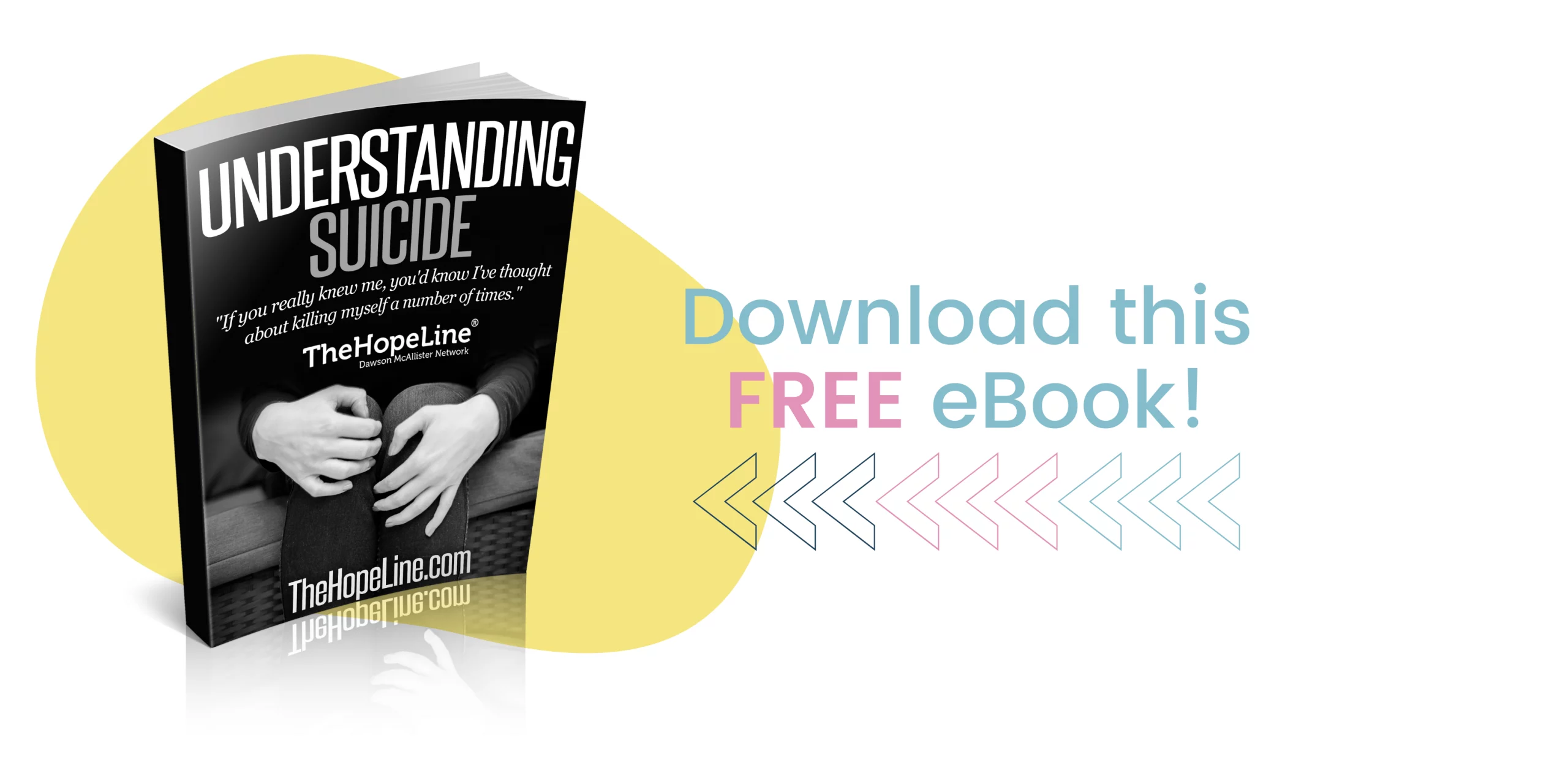There have been a few times in my life when someone I care about has called me or met with me and said, “I just don’t think I can go on living anymore.” It’s overwhelming when a friend or loved one is struggling with depression and suicidal thoughts. Ultimately, they have to make their own choices. But you are not powerless.
Helping a friend who is suicidal starts with having a clear understanding of what you can and can’t do.
- You can listen to your friend.
- You can’t force your friend not to have suicidal thoughts.
- You can encourage your friend.
- You can’t cure the mental illness or change the life circumstances that have discouraged and overwhelmed your friend.
- You can do things to help your friend feel safer when they’re having suicidal thoughts.
- You can’t put yourself in an unsafe situation in order to help someone else.
With these truths in mind, here are some things I do to help a friend who comes to me struggling with thoughts of suicide.
Call 9-1-1
If it’s clear that your friend is planning to hurt themselves or take action on their suicidal thoughts right away, call 9-1-1. Don’t worry about inconveniencing anyone. Let the operator know what is going on and give them a contact number and address for both you and your friend. Be careful to listen to and follow any instructions the operator gives you.
Contact the Suicide Helpline
Sometimes your friend might not be in immediate danger of hurting themselves, but their thoughts might still concern you.
You are going to feel overwhelmed, and you may not know what to do or say. That’s perfectly natural. Don’t beat yourself up in those moments. There’s something you can do that will have a big impact.
Remind your friend that suicide is preventable, and they can get through these tough feelings and heal.
Put your friend in touch with suicide prevention services, where people are trained in how to talk to someone who is considering suicide.
The number for a 24 hour suicide hotline is always good to have on hand. The number for the National Suicide Prevention Lifeline is 1-800-273-8255. They also have an online chat. They will do everything they can to deescalate the situation so that your friend feels calmer and is able to get the help they need.
Pray and Encourage
In the days after your friend calls you with suicidal thoughts, they are going to feel drained and discouraged. I find it encourages people in my life who have been struggling when I do things like:
- Remind them what I love about them
- Tell them what they have to offer
- Spend calming time with them in a place where they feel comfortable
- Pray with them (or for them) to be comforted by God’s love, and to find peace and healing
Doing little things to make your friend feel seen, heard, and loved will go a long way toward encouraging and uplifting them after a difficult time.
Get the Support You Need
Of course, you want to make your best effort to practice healthy boundaries with your friend. You are not responsible for their choices, and you should not be the only person they ever come to with their struggles.
If you are feeling overwhelmed, make sure you get the support you need to help yourself through this challenging situation.
TheHopeLine offers resources to help you through relationship challenges and uncertain times. Talk to a HopeCoach if you’re not sure how to help your friend who is suicidal, or if you’re feeling overwhelmed after trying to help them. We are here for you, and you don’t have to go through this alone.
Suicide is not an easy topic to discuss but talking about suicide does save lives. Read my blog for more discussion and understanding of why people end their life by suicide.
If you or a friend need support right now, call the National Suicide Prevention Lifeline at 1-800-273-8255, for free confidential, 24/7 help. For a list of crisis centers around the world and additional help, please visit the suicide prevention resource page.



